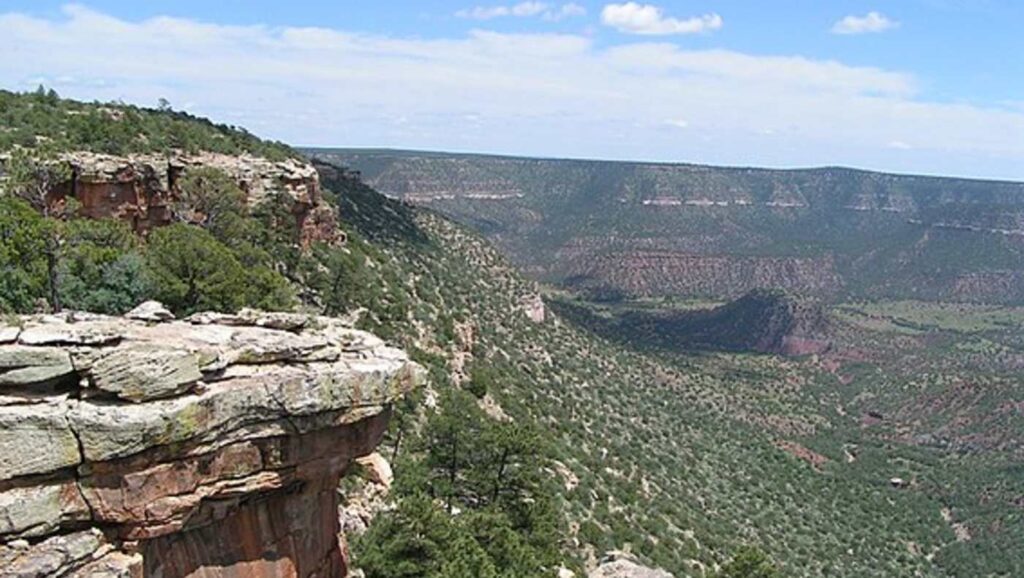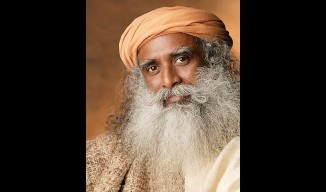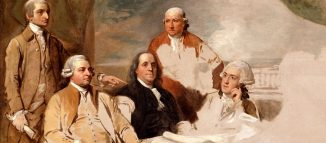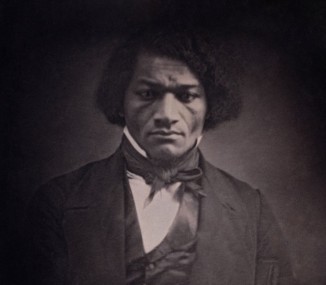60 years ago today, the Wilderness Act was signed into law. Written by Howard Zahniser of The Wilderness Society, it has been used to preserve 757 areas encompassing 109.5 million acres of federally owned land in 44 states and Puerto Rico. The law is well-known for Zahniser’s poetic and succinct definition of what “wilderness” meant. READ the law’s poetic language below… (1964)
 Sabinosa Wilderness – BLM
Sabinosa Wilderness – BLM“A wilderness, in contrast with those areas where man and his own works dominate the landscape, is hereby recognized as an area where the earth and its community of life are untrammeled by man, where man himself is a visitor who does not remain,” Zahnhiser wrote.
Histories of America’s public land system have described that the same sort of sea change in national consciousness that brought about the National Park system brought about the Wilderness system also. Namely, part of America’s identity was having vast tracks of untamed land, which by 1964 had fallen to about 2.5% of the country.
President John F. Kennedy was a supporter of the idea, and encouraged the bill to push through the Senate. After his assassination, Lyndon Johnson included the Wilderness Act on his list of “30 musts.” A conference committee resolved the differences between the House and Senate versions, and Johnson signed it into law.
The criteria for which areas could be designated as wilderness included land packages greater than 5,000 acres that have scientific or historic value, which included unconfined opportunities for non-motorized recreation, and which have no permanent commercial or industrial development or roads.
MORE Good News on this Day:
Happy 67th birthday to Sadhguru Jagadish Vasudev, the yoga teacher, speaker, proponent of regenerative agriculture, and other social causes. Born in the Indian state of Mysore, he has been teaching yoga in southern India since 1982, but it was in the 90s that his talent for inspiring collective action was realized with the foundation of his Isha Foundation in 1992, and the launching of the GreenHands, Rally for Rivers, and SaveSoil campaigns to try and improve natural resources around the world…
 Sadhguru – CC 3.0. Isha Foundation
Sadhguru – CC 3.0. Isha FoundationIn 2017, he received the Padma Vibhushan, India’s second-highest civilian award, for his contributions to social welfare. Vasudev has authored several books, including Inner Engineering: A Yogi’s Guide to Joy, and Karma: A Yogi’s Guide to Crafting Your Destiny; both have made it to The New York Times Best Seller list.
Recently making an appearance on the Joe Rogan Experience, Sadhguru detailed some of the more digestible parts of his mysticism. Among these was a lesson that happiness arises from feelings inside of a person, and that peace, love, ecstasy, health, and compassion all come from within, while success, the general metric of happiness in the West, comes only from the cooperation of people and forces around us, i.e. that which is difficult to control. (1957)
Happy Birthday to Shaun White, the three-time Olympic gold medalist in half-pipe snowboarding, who turns 38 today. He was a champion skateboarder in his teens after undergoing two open-heart surgeries as an infant.

He became first person to compete in and win both the Summer and Winter X Games in two different sports–including historic wins four years in a row and tallying more X-Games gold medals than anyone.
In both the 2006 and 2010 Winter Olympics he brought home the gold in the snowboard halfpipe event and won hearts worldwide with his flowing red hair and broad smile.
 Gina Hughes, CC license
Gina Hughes, CC licenseIn 2018, Shaun White won his third Olympic gold medal in dramatic fashion. (Especially because just months earlier he’d required 62 stitches in his face following a fall during training.) He was in second place, trailing by one full point coming into his last run of the Korean games with a score of 94.25. Then, he performed back-to-back 1440s on his ride down the half-pipe to win, scoring 97.75 and reclaiming his golden throne. WATCH the moment… (1986)
And, on this day in 1783, the United States won independence from Britain when the American colonists signed the Treaty of Paris to end the Revolutionary War.

Benjamin Franklin, John Adams, John Jay, and Henry Laurens represented the United States in the Paris talks. David Hartley and Richard Oswald, representing Great Britain, ceded all the land east of the Mississippi River, north of Florida, and south of Canada. It was highly favorable for the US, with the British anticipating a highly profitable two-way trade between the two, which indeed came to pass.
74 years ago today, Nino (Giuseppe) Farina became the first official Formula One World Champion driver.

Commencing on 13 May, the inaugural season of the FIA World Championship of Drivers consisted of six Grand Prix races in Europe, plus the Indianapolis 500. The Italian racer drove an Alfa Romeo, and won his nation’s championship three times. Ironically, he died during retirement on his way to the French Grand Prix in 1966 when he lost control in the Alps and his Lotus hit a pole. (1950)
And, 85 years ago today, the King’s Speech of George VI was broadcast to the people of Britain upon that country’s Declaration of War against Germany.

Unprepared to become king, he accepted the role suddenly and reluctantly after his brother took a wife and abdicated the throne.
A stutterer from the age of 8, it was almost impossible for him to pronounce the letter ‘k’, but thanks to a last-ditch speech therapist, Australian Lionel Logue (who was in the room during this radio broadcast), King George met the moment and offered great solace to the British people during a terrifying time—a feat that few thought him capable of, due to his years of stuttering. The portrayal of The King’s Speech in a 2010 film starring Colin Firth is among the most nominated films of all time, and is mostly accurate in its retelling of the close friendship between the royal and his unconventional therapist.
At the mercy of his greatest weakness—public speaking—he conquered the task with great dignity, after practicing with Logue, who taught him where to pause and breathe during the speech. You can detect one of the techniques used to overcome the stutter, when he uses a very brief “a-” before some of the more difficult words. WATCH a video and hear the famous radio address: “There will be dark days ahead”… (1939)
And, on this day in 1838, the future abolitionist Frederick Douglass, dressed in a sailor’s uniform and carrying identification papers provided by a Free Black seaman, boarded a train in Maryland on his way to freedom from slavery.
At age 20, he went on to become a great orator, writer, and statesman. Known for his incisive antislavery writings and speeches, he stood as a living counter-example to slaveholders’ arguments that slaves lacked the intellectual capacity to function as independent American citizens. (Watch a video below)
SHARE the Shining Moments in History on Social Media…
Source link

